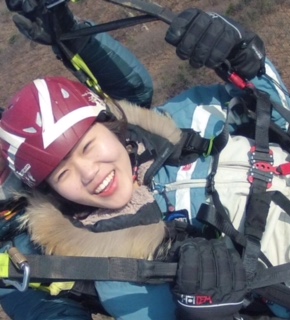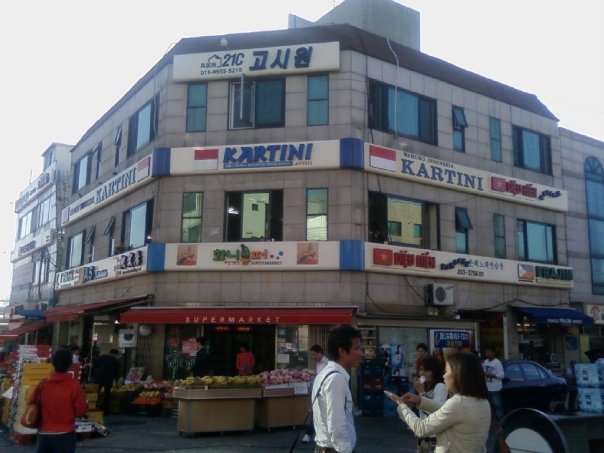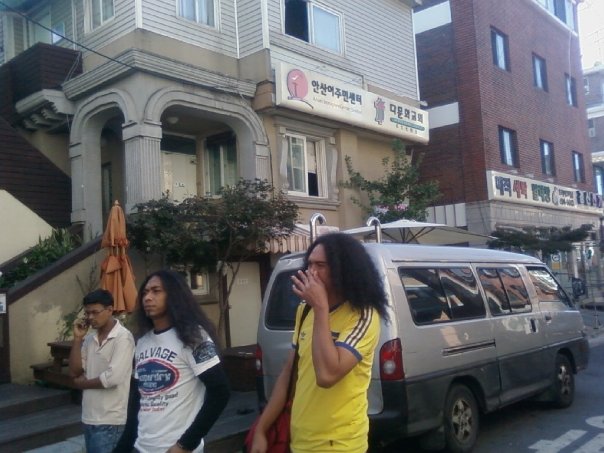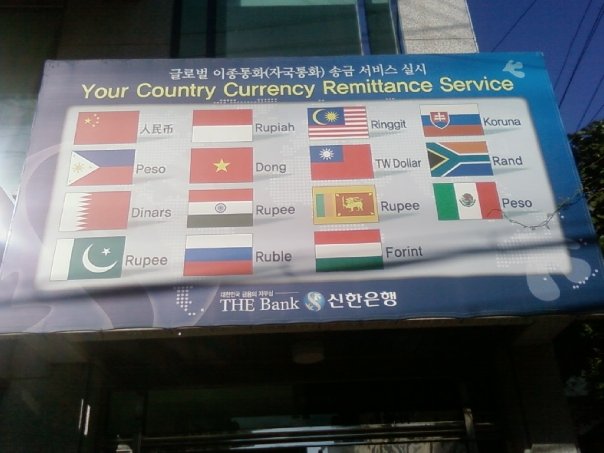Seoul is a vibrant city that has attracted people from all over the world including this writer. In my time there, I realized the “globalization” I always heard about in Canada (people moving to the “west”) was only a part of what was happening. People from everywhere were moving everywhere. And they were doing this for WITS – Work, Investment, Travel, or Studies. This continues today more than ever before.

Yeoran Kim
I have grown fascinated with migration stories and it has been a pleasure to connect with Yeoran Kim, a journalist based in Korea, who has provided perspective on a Korean social landscape that is not completely different from Canada past or Canada present. In our first installment of Ricepaper’s WITS series, we look at one group of people in particular who have moved to Korea. They are known as “Migrant Laborers” and they are there for manual jobs, but more so for the opportunity. And this comes at a price. Below is the second part of our interview with Yeoran. Part one can be found here.
The following interview was translated by April Lee. Photos by Gavin Hee.
*******
RP: Who is fighting for these people on their behalf?
The main defender is the Migrant Union. The chair is from Nepal and he is now a Korean citizen*. Since they are always understaffed, it is not possible to take on each person’s battle.
*This man from Nepal married a Korean citizen and is afforded liberties not provided to other migrants.

Indonesian, Vietnamese, Filipino, Chinese signage found along with the usual Korean (Ansan).
The ministry of labor provides financial aid to the company which hires the foreign workers through the foreign workforce support centre. Sadly, the organizations that do not receive any financial aid tend to be more active in solving problems.
Korea’s migrant labor policy is not about immigration. There is almost a policy to obtain labor until it cannot be used anymore at which point it gets sent back.
Most of the political action is grandstanding. A person who plays a role in a country for 4 to 5 years should have a political stake. They need others to speak up for them since they cannot do it for themselves. There are no interpreters to support the people of the 16 countries that work under the permit system. It can be said that the migrant labor activists are the only ones fighting for them.
RP: Is there a hierarchy that exists whereby a migrant from one country has an easier time living than another? We have witnessed this form of discrimination in Canada. For example, might someone Filipino have an easier time adjusting and fitting in than someone who is Nigerian?
In Korea, where minorities make up a relatively small percentage of the overall population, they are just a minority. There is no hierarchy.

A Vietnamese restaurant in Ansan, Gyeonggi-do (35 mins outside Seoul).
RP: Many Canadians prefer to say they are straight “Canadian.” Others are more comfortable saying they are a hyphenated Canadian, for example, “Asian-Canadian” or “Canadian-Asian” because they are reminded of divisions among people such that they do not feel a sense of inclusion and so using “Canadian” is not appropriate. What is the cultural landscape like for someone who is not by the majority definition considered fully Korean? What cultural identifiers would they use or not use?

In my personal opinion, all of these are very unfamiliar things in Korea. Multiracial people and foreigners are few (except for tourists). It is still “Korean” and “non-Korean.” For example, a Filipino migrant woman who is married to a Korean man is usually called the “Filipino daughter in law” instead of Filipino-Korean, no matter how long she lives in Korea. Locals are not used to seeing or dealing with foreigners. She would not even have a name.
RP: Canada has witnessed waves of migration for decades. We have experienced ethnic conflict and still do today. Is there anything that Korea can learn from Canada, both on the positive and the negative side? Is there anything that you know about Canada that you would like to see applied but is too difficult to introduce and have accepted?
Although I do not know much about Canada, please allow me to answer in general.

Financial institutions advertise to a growing market for remittance services.
Despite Korea globalizing, it is still very rare to find foreigners in mainstream Korean society. When it comes to immigration, I think Korea is not a more attractive country than Canada or Australia. However, in the case of East and South Asians, Korea is politically stable compared to other source countries. Even though the minimum wage is lower than the living wage, a life in Korea is still seen as offering better opportunity.
But like I mentioned, the Korean immigration policy has not been widely opened yet. It is hard and complicated to get permanent residency even for foreign women who get married to Korean men and vice versa.
As Canada, Australia, and other developed countries have been dealing with decreasing birthrates Korea is facing the same problem. Therefore, as this is an economic issue that carries weight, I expect that the future of immigration will be more open in order to fill the labor force permanently, just like with Canada and Australia.
To learn more about and contribute to Yeoran Kim’s project, please visit here. For assistance, feel free to contact April Lee.
Stay tuned for more like this as we continue to explore goings on in countries that are a lot closer and similar to us than some may think.